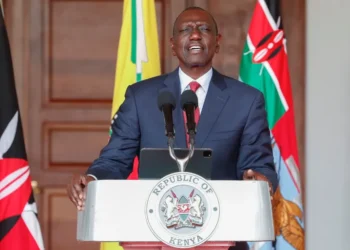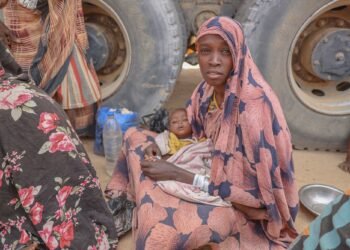Ivory Coast cocoa farmers fear U.S. trade policies could destabilize their already fragile industry, as the country faces the prospect of a 21% tariff on its cocoa exports to the United States — proposed under President Donald Trump’s administration.
Though the tariff has been delayed for 90 days pending review, uncertainty looms large over a sector that sustains hundreds of thousands of livelihoods.
Jean Mari Konan Yao, a cocoa farmer in western Ivory Coast, is among many whose survival depends on cocoa. The country is the world’s largest cocoa producer, supplying nearly half of the global cocoa demand. “Cocoa has long provided a lifeline for me”, he said, “but the weather is against us, and now we hear there could be taxes too.”
Ivory Coast exports between 2 million and 2.5 million metric tons of cocoa annually. According to the Coffee and Cocoa Council, up to 300,000 metric tons are shipped to the United States each year. In 2023, cocoa exports reached $3.68 billion — second only to gold in national exports. The U.S. remains Ivory Coast’s fourth-largest cocoa buyer, after the Netherlands, Malaysia, and Belgium.
The tariff plan, should it be enforced, would be the highest imposed on any West African nation. Local authorities and farmers say this could inflate cocoa prices further while restricting U.S. access to Ivorian cocoa and hurting local sales.
Salif Traoré, another farmer from the region, warned that the move would worsen already difficult conditions.
“If we hear the American president is going to put a tax on the price of cocoa, it’s really not good for us, it doesn’t help us.”
Salif Traoré
Ivory Coast Cocoa Industry Faces Market Instability
Even before the proposed tariff, cocoa prices in the region were climbing due to climate-related disruptions. The UK-based Energy and Climate Intelligence Unit highlighted that cocoa prices imported into Britain have surged 32% in three years — largely due to extreme weather in cocoa-producing nations like Ivory Coast, Ghana, Nigeria, and Cameroon. These four countries account for roughly 75% of the world’s cocoa output.

Cocoa operates on a regulated global trade market. In Ivory Coast, the government sets local prices at the start of each season, taking into account global trends. However, these fixed prices are typically lower than what is fetched internationally, which limits how much farmers can benefit from rising global demand for chocolate.
Authorities are now considering a domestic cocoa price hike if the U.S. tariffs are approved. But farmers argue this may not be enough to offset lost income and blocked sales.
“Donald Trump’s customs tax is causing us problems, we are already feeling the effects,” said Boss Diarra, coordinator of the cocoa farmers’ union in Bouaflé, a central Ivorian town. He gestured toward unsold cocoa sacks piling up—evidence, he said, of halted trade and mounting anxiety.
Experts say if U.S. demand slows, excess supply may be redirected to Europe. Market analyst Bruno Marcel Iritié of the Félix Houphouët-Boigny Polytechnic Institute believes European buyers could leverage the oversupply for better deals. “European customers will inevitably buy cheaper because when there is too much, the customer is king,” he explained.
While the final decision on the tariff remains pending, farmers are left in limbo — caught between weather uncertainties, fluctuating markets, and global politics.
With thousands of small-scale producers depending on cocoa for daily survival, the potential impact of a 21% tariff could extend beyond economics — triggering broader social and community challenges in Ivory Coast, a country whose role in global chocolate supply chains cannot be overstated.







